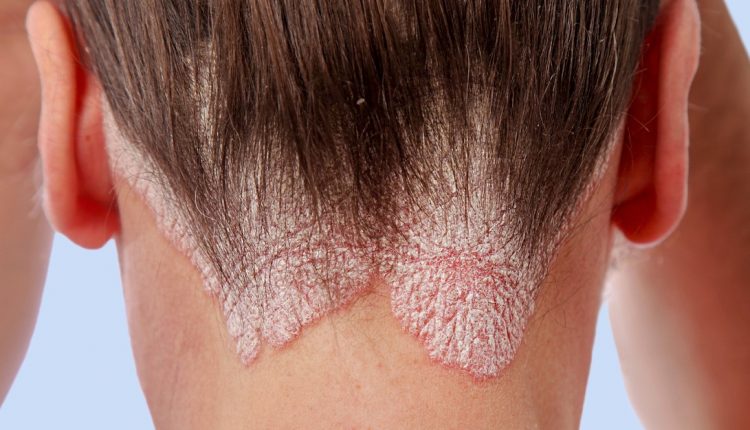
Psoriasis: what it is and what to do
Psoriasis is a skin disease that manifests itself chronically with desquamative erythema. Statistically, it has been shown to be very frequent (affecting 2-5% of the population), particularly in Western countries
It can occur in people of both sexes at any age, but most frequently between adolescence and the age of 50.
Psoriasis is not a contagious disease
Moreover, in most cases, it does not lead to disabling limitations for the sufferer.
However, the presence of skin lesions in certain areas can lead to embarrassment or even anxiety and depression.
Sometimes this condition is linked to states of stress. In such cases, psoriasis becomes a symptom of the stressogenic forms.
Causes of psoriasis
The causes of this type of dermatosis are still unknown.
Frequently several members of the same family are affected, so it is usually considered a hereditary disease.
The individual is therefore genetically predisposed to suffer from this disease.
Signs and symptoms of psoriasis
The disease manifests itself with flaking of the skin and the appearance of red patches.
The scales may be silver-coloured or whitish. The red patches are usually round and circumscribed.
There are different types of psoriasis.
They are classified according to the size and shape of the spots:
- psoriasis vulgaris, if the spots are fixed and more or less large;
- psoriasis guttatta, if the area is covered by a larger number of smaller patches;
- pustular psoriasis, if small pus-filled bubbles appear on the erythema;
- erythrodermic psoriasis, which is accompanied by fever, increased inflammation and scaling and affects the entire skin;
- psoriasis, which manifests itself with joint pain and sometimes with osteolysis and ankylosis.
The areas of the body particularly prone to these symptoms are:
- the scalp
- the elbows
- the knees
- hands
- feet
- lumbosacral area
- your nails
Any area potentially at risk, including the genital area.
More rarely it affects the face.
Lesions caused by this disease do not usually itch.
However, it does appear if the affected areas are the scalp or ano-genital area and in particularly nervous persons.
Read Also:
Emergency Live Even More…Live: Download The New Free App Of Your Newspaper For IOS And Android
Epidermolysis Bullosa And Skin Cancers: Diagnosis And Treatment
SkinNeutrAll®: Checkmate For Skin-Damaging And Flammable Substances
Healing Wounds And Perfusion Oximeter, New Skin-Like Sensor Can Map Blood-Oxygen Levels
Psoriasis, An Ageless Skin Disease
Psoriasis: It Gets Worse In Winter, But It’s Not Just The Cold That’s To Blame
Childhood Psoriasis: What It Is, What The Symptoms Are And How To Treat It
Topical Treatments For Psoriasis: Recommended Over-The-Counter And Prescription Options
What Are The Different Types Of Psoriasis?
Phototherapy For The Treatment Of Psoriasis: What It Is And When It Is Needed



